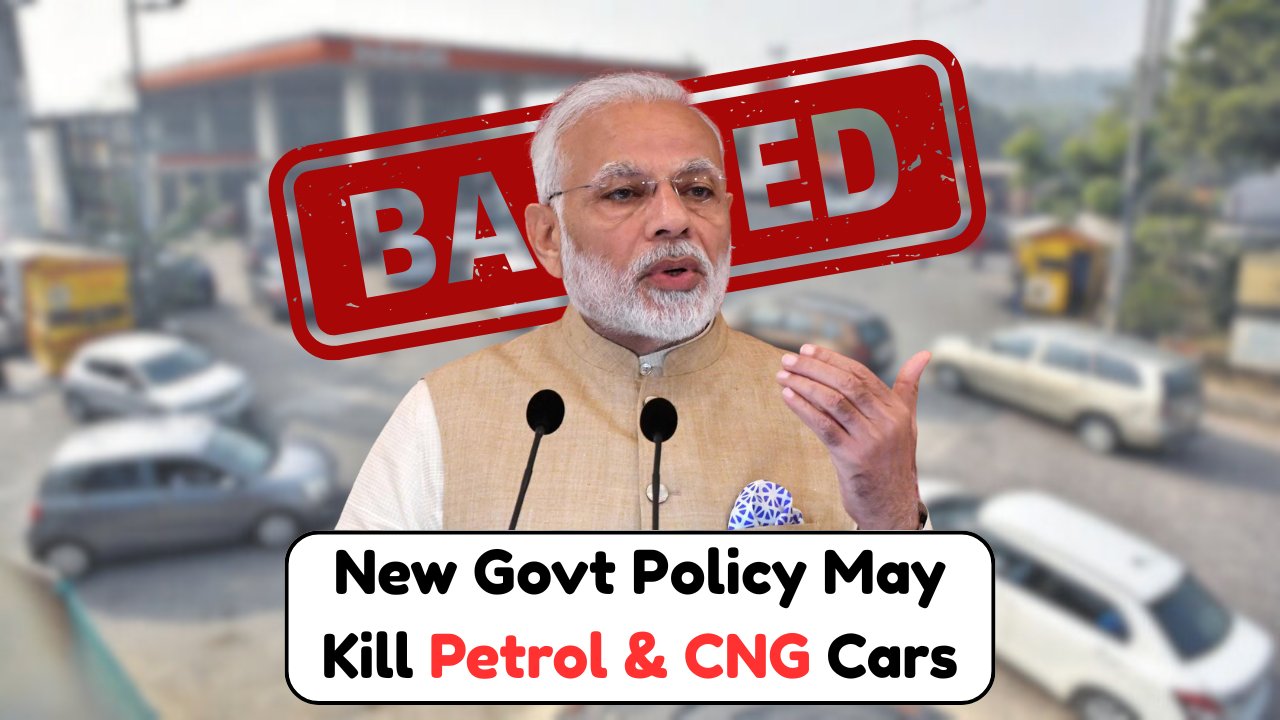Petrol and CNG Cars : As the government intensifies efforts to promote electric mobility and reduce emissions, recent policy announcements have sparked widespread confusion regarding the future of petrol and CNG vehicles in India. Motorists, automakers, and consumers are anxious about whether these traditional fuel-based vehicles will soon be banned or phased out. Let’s break down the facts behind the latest government policy, what it means for car owners, and how it could affect the automobile market in the coming years.
What Triggered the Petrol and CNG Cars Confusion?
The confusion stems from a recent policy draft and public statements made by key officials aiming to accelerate the transition to electric vehicles (EVs) by 2030. However, the lack of clear implementation timelines and vague wording in the proposals have led many to assume a complete ban on petrol and CNG cars.
Key Highlights Behind the Policy Confusion:
- Statements about “discouraging the use of internal combustion engine (ICE) vehicles.”
- Push for EV-only registration for two- and three-wheelers in some states.
- Discussions around “green zones” in cities where only electric vehicles may be allowed.
- Speculation on rising road tax and fuel costs for petrol/diesel vehicles.
Is There a Ban on Petrol and CNG Cars?
At present, there is no official nationwide ban on petrol or CNG cars. However, several state governments and regulatory bodies have introduced incentives and restrictions that suggest a gradual transition, rather than an abrupt ban.
Current Government Stand:
- No nationwide ban has been announced or enforced.
- The government encourages adoption of EVs through incentives and subsidies.
- ICE vehicles can still be registered and operated legally across the country.
- State-level initiatives may impose partial restrictions in select areas.
Timeline of Events and Statements
| Date | Event/Statement | Impact/Reaction |
|---|---|---|
| Jan 2023 | EV adoption targets raised for urban centers | Confusion over whether ICE vehicles would be banned |
| May 2023 | Delhi government expands EV-only zones | Led to assumption of ban on petrol/CNG cars |
| Aug 2024 | Transport Minister speaks on 2030 EV vision | No official policy, but market speculated otherwise |
| Mar 2025 | Draft EV policy released | No mention of ICE ban, but heavy EV push noted |
States Implementing EV-Only Zones or Incentives
While there’s no ban, certain states are taking proactive measures to promote EV use.
| State | Action Taken | Effect on Petrol/CNG Vehicles |
|---|---|---|
| Delhi | EV-only zones in Connaught Place, Civil Lines | ICE vehicles restricted in certain localities |
| Maharashtra | Subsidies and extra road tax on ICE cars | Higher cost of ownership for petrol/CNG car buyers |
| Karnataka | 100% EV bus fleet by 2030 target | ICE phase-out only in public transport segment |
| Tamil Nadu | EV charging infrastructure expansion plan | Encouragement, not restriction |
| Gujarat | Reduced registration fee for EVs | Indirect discouragement of petrol/CNG |
What the Auto Industry Says
Automobile manufacturers are closely monitoring the developments. Many are investing heavily in EV production but are also cautioning the government against hasty decisions that may hurt consumers and current car owners.
Industry Concerns:
- Lack of EV infrastructure in tier 2 and 3 cities.
- Affordability gap between EVs and petrol/CNG cars.
- Potential job losses in ICE vehicle manufacturing sector.
Auto Giants’ Response:
- Maruti Suzuki: Planning EV launch by 2025, no phase-out of petrol models yet.
- Tata Motors: Aggressive EV rollout but still supports petrol variants.
- Hyundai: Balancing both EV and ICE portfolios.
What This Means for Vehicle Owners
If you’re currently driving a petrol or CNG car, you do not need to worry about an immediate ban. However, it’s important to stay informed about local regulations and long-term trends.
Key Takeaways for Car Owners:
- Your petrol or CNG vehicle remains legally valid.
- Future resale value of ICE vehicles may decline.
- Consider hybrid or EV options if planning to buy a new car.
- Keep track of city-specific restrictions or green zones.
What’s Next? Expected Policy Clarifications
The government is expected to issue a detailed clarification soon to address the public’s concerns. Policy experts are calling for a phased, transparent transition rather than abrupt enforcement.
Possible Upcoming Measures:
- Gradual increase in registration fees for ICE cars.
- Clear deadlines for EV adoption in public transport.
- Incentives for trading in old petrol/diesel vehicles for EVs.
- State-specific guidelines rather than national bans.
Despite the speculation, there is no immediate ban on petrol or CNG cars in India. The government’s focus remains on promoting electric mobility while allowing a smooth transition from conventional fuels. As things stand, consumers can continue using and purchasing ICE vehicles, though they should stay alert to future developments and consider eco-friendly alternatives when possible.
